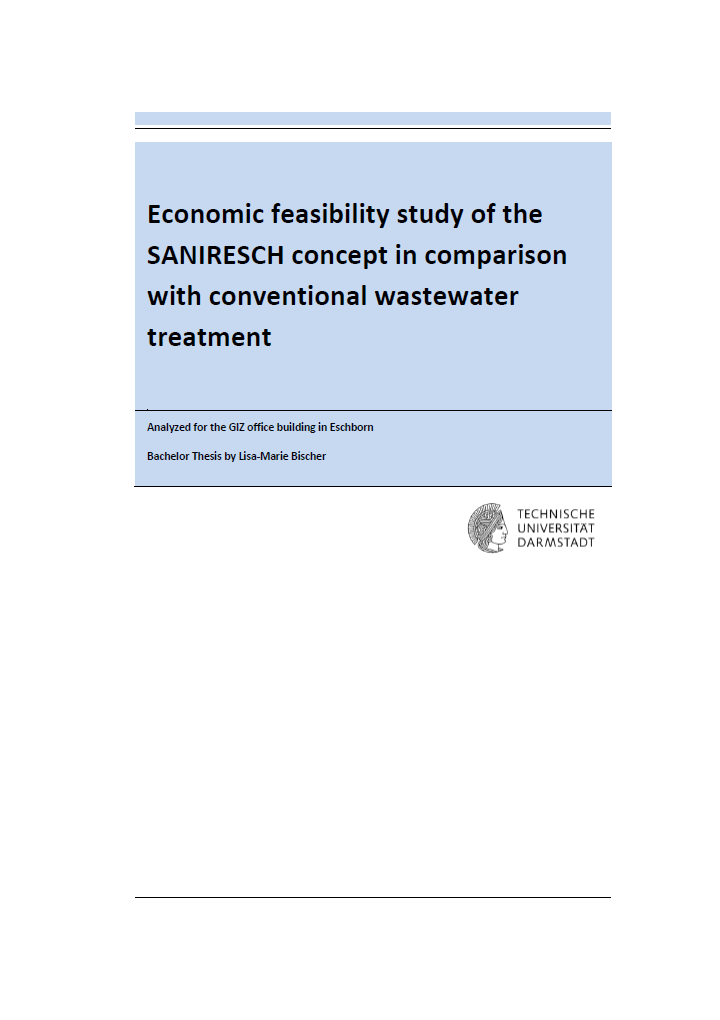
Published in: 2012
Author:
Various Authors
Uploaded by:
SuSanA Admin
Partner profile:
common upload
2444 Views
60 Downloads
Comparing the costs for SANIRESCH with today´s costs for conventional wastewater treatment and standard commercial fertiliser, the alternative system is more expensive for both “Office building” and “Agricultural application”. However, the sensitivity analyses show that a certain potential exists. The differences come especially through the higher running costs, which influence is bigger than the higher investment costs. However, the sensitivity analyses show that a certain potential exists. With augmented durability of the spare parts of the NoMix toilets in combination with reduced investment costs of sanitary equipment, the system can reach the cost level of a conventional system. The economic feasibility analysis of the agricultural application showed that both alternative fertilisers are more expensive. Today fertilisation with urine can be economic feasible when the framing conditions such as land prices are adequate, which is not the case in Eschborn. If higher automation of the MAP precipitation is achieved the system can become economically feasible as well. To achieve this, the production costs have to stay below those for commercial phosphorus fertiliser. This requires a continuation of research and development for the MAP production.
1. Lisa-Marie Bischer (Technical University of Darmstadt) investigated in her bachelor thesis the economic feasibility of the sustainable sanitation system SANIRESCH and compared it with a conventional system
2. Christina Braum (Justus Liebig University in Gießen) looked into the costs for logistics dealing with urine and MAP
3. Andrés Lazo Paéz (Technical University of Hamburg-Harburg) examined the economic feasibility of the sanitary in-house installations in SANIRESCH compared to a conventional system
The principal lead of this focus point was GIZ. GIZ worked together with the University of Bonn in assessing the feasibility of urine reuse.
Project outputs regarding economic feasibility studies of the new sanitary system in house 1 of the GIZ as well as the logistics of urine/MAP can be accessed here.
Bibliographic information
Various Authors (2012). Economic feasibility - within SANIRESCH Project.
Filter tags
English Europe & Central Asia Factsheets and policy briefs German Presentations















